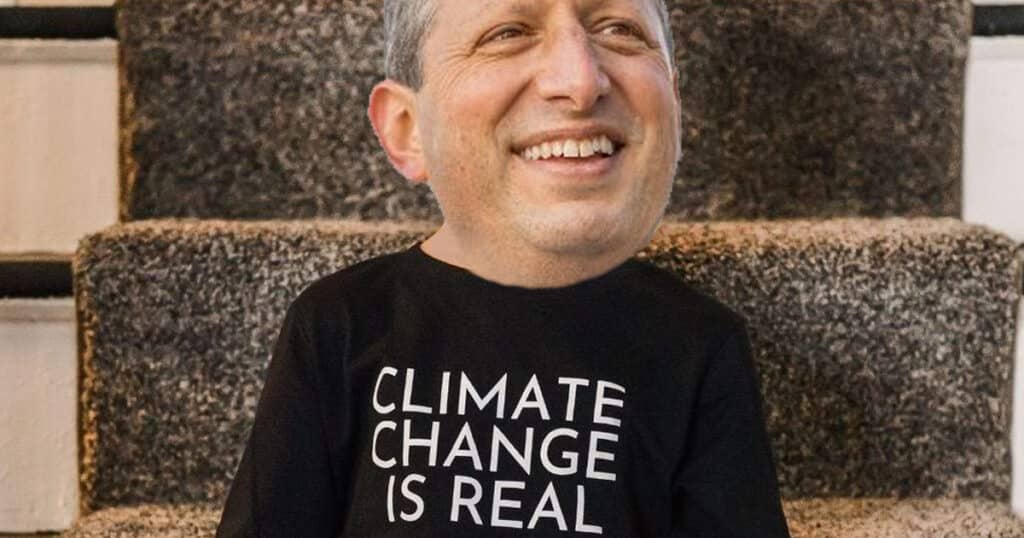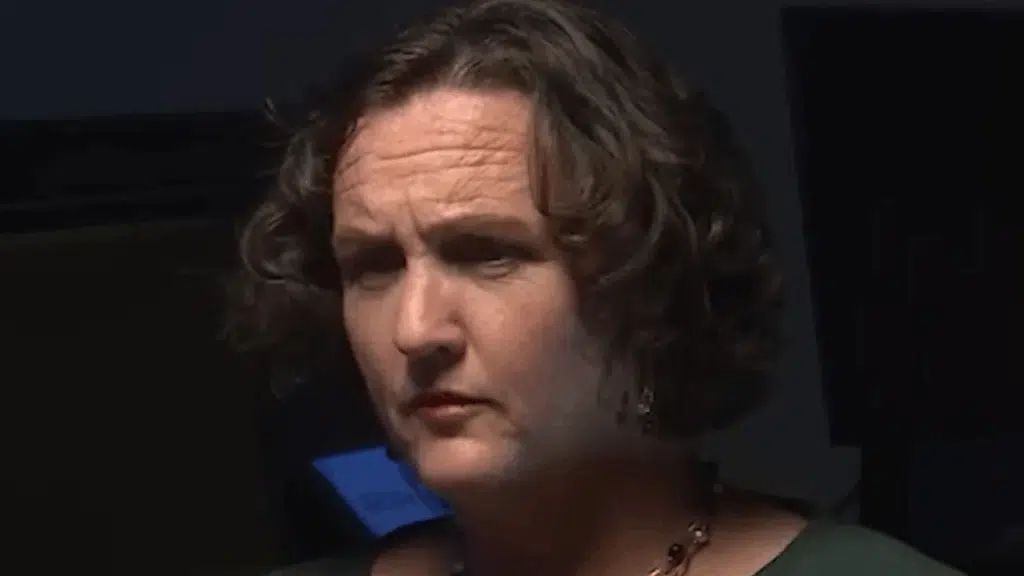
Answering Brad Lander’s Fatal Climate-Change Conceit
Investing in fossil fuels is irresponsible, even self-immolating.
The markets have mispriced risks posed by climate change, but asset prices will soon correct, resulting in massive investment losses.
To mitigate higher-intensity storms and rising seas, we must redirect pension savings into renewable energy, energy efficiency, and low-carbon technologies.
The energy transition is underway, but much more must be done.
New York City will end up underwater if we don’t move more public retirement money into greener investments immediately.
New York Comptroller Brad Lander made this litany of assertions in a letter last week to his colleagues at Ceres, an NGO committed to sustainability challenges on whose board he serves.
For any of these statements to be true, the International Energy Agency, the UN’s Intergovernmental Panel on Climate Change, multiple Nobel Prize winners, a majority of the world’s most sophisticated investors, and the intelligence agencies and energy ministers of every G-7 nation must be wrong. “There are special interests who are trying to get comptrollers like me and other fund managers to ignore [climate] risks, using misinformation to convince people that sustainable investment is politically motivated, and … should not be allowed to factor … into decision-making,” Lander added.
False, false, and false again.
Human activities, including record consumption of fossil fuels, are having profound impacts on our air, land, and water. Ideally, a low-carbon or carbon-free energy mix will one day cheaply power all of our industrial, transportation, and residential needs. Given tradeoffs between carbon intensity, energy reliability and affordability, and national security, we haven’t figured out how to do it yet. That’s why the IEA continues to forecast record demand for oil and gas in the short term, and rising demand for the rest of this century. Starving our domestic energy producers of capital while consuming record amounts of oil and gas would only make us and the entire free world more dependent on people like Vladimir Putin, Nicolas Maduro, and Middle Eastern autocrats. G-7 energy ministers meeting now in Sapporo, Japan can’t even project an end date for phasing out coal, let alone a comprehensive energy transition. Billions of people still use coal to keep their heat and lights on. Billions more lack access to reliable electricity.
Eugene Fama was awarded the Nobel Prize in economics for developing the random-walk and efficient-markets hypotheses. Fama’s research revealed how asset prices reflect all available information with remarkable efficiency. Along with Nobel Prize winners Paul Samuelson and Friedrich Hayek, his work undergirds the still-unrefuted investment case for broad market indices. The world’s largest sovereign wealth fund – Norway’s – studied climate risk as part of a recent asset allocation review. Its conclusion? “We do not believe there is sufficient evidence to claim that climate risk is systematically mispriced.” This report was released in 2021, one year before energy stocks outperformed tech stocks by more than 65%.
The Norway climate investment analysis did not end there. “A decision to replace our current equity index with a climate-adjusted index would mean our fund would miss out on opportunities where companies undergo a transformation. Not investing in companies or sectors by using a climate-adjusted index is not a very suitable tool for bringing about changes in corporate behavior.” Indeed, to change corporate behavior, you must invest, not dives. To optimize risk-adjusted returns, you must have exposure to the entire market, not cherry-pick the companies and industries you like best.
Projections for future temperature rise based upon carbon emissions are wide and variable, but projections for sea rise are even wider and more variable. According to the IPCC, average sea level increases over the past century were a mere 1–2mm per year – that is to say, one to two thousandths of a meter annually, or 10–20 centimeters over 100 years. Hardly cataclysmic. The IPCC now projects with “medium confidence” that this pace may increase through the end of this century, though it remains unsure by how much. Meanwhile, the Copenhagen Consensus Institute counterintuitively finds that hurricanes are becoming weaker and less frequent. Will more investment be needed to protect seaside public infrastructure and residential areas? Yes. Will New York City residents have no place to live, and New York City teachers, firefighters and policemen and women be flooded out of work thirty years from now if they don’t invest more of their hard-earned pension money on green solutions today? Of course not.
“It ain’t what people don’t know that gets them into so much trouble,” Mark Twain famously quipped. “It’s what they know for sure that just ain’t so.”
Honorable public officials eager to promote the common good, like Brad Lander, claim to know more than common sense allows. Public pension assets should broadly be managed like Norway’s – in other words, they should strive to maximize returns responsibly and at minimal cost. Investment paradigms based on speculative assumptions and restricted investment universes suggest political motivations – exactly what Friedrich Hayek memorably dubbed “the fatal conceit.”
Terrence Keeley is the author of Sustainable: Moving Beyond ESG to Impact Investing, and the CEO of 1Point Six LLC.
This article was originally published by RealClearEnergy and made available via RealClearWire.


